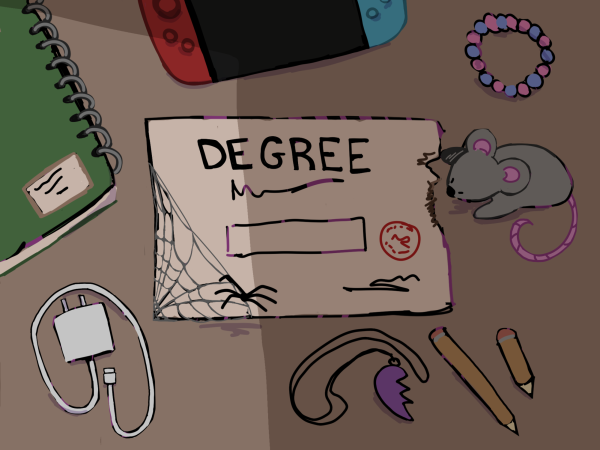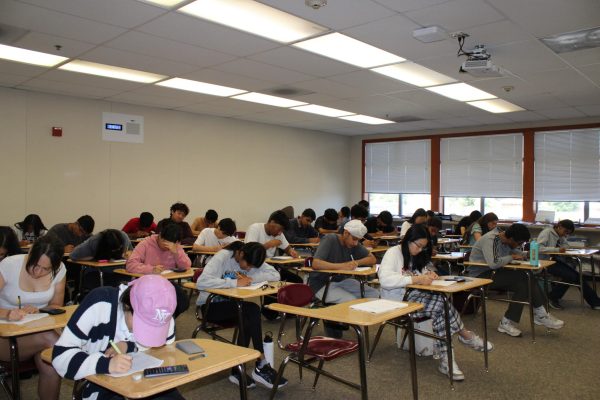Can society survive social media?
The spread of misinformation is helping tear American democracy apart
Political opinions are difficult to discuss in the current cultural climate of America because of the rampant stubbornness on either end of the political spectrum. Social media has only served to inflame this problem through misinformation.
Social media naturally encourages consuming attractive content. After all, why would we consume content that we don’t enjoy if we simply don’t have to? What it does not do is necessitate truth.
Truth on social media has become even more important recently as a result of a rise in political activism content and surge in misinformation regarding the presidential election.
The nature of social media as a platform to spread information rapidly and from anyone regardless of their background is a double edged sword. On one hand, information that couldn’t otherwise spread to a large audience now can, educating many on the issues around them. On the other hand, this means that anyone with an internet connection can spew whatever flavor of misinformation they want to.
This is exemplified by the downfall of local newspapers in America today, directly correlating with the rise of social media and the internet. Although the two initially may seem unrelated, they serve a similar purpose. Local newspapers in America often took the role of informing readers of issues that otherwise wouldn’t receive much coverage, which, paired with its daily printing schedule, allowed papers to be a primary source of information for important local issues.
But as access to the internet increases, consumption of media and information becomes much more personal. With a wealth of knowledge now available to the public and the freedom of users to write whatever they want, this removed the primary function of local newspapers as sources of information for crucial topics that otherwise wouldn’t have a home.
Beyond that, local newspapers just aren’t as interesting to most people as social media. The streams of media and the way following works on platforms such as Instagram and Facebook allow viewers to only consume media that they like. Combined with the shortening attention spans of people today, most people would rather have a centralized source of media that piques their interest and theirs alone, rather than a more impersonal yet in-depth form of media that involves little to no participation of the reader.
One must keep in mind the downsides of literally everyone being able to post on social media. There is not the same journalistic integrity necessary to participate in news reporting, nor is there the same desire to be informed and genuinely understand the issues at play. This disparity is what allows for the rapid spread of misinformation on social media, increasingly making it difficult to engage in positive and meaningful discussion with others.
It’s easy to point to numerous examples of misinformation from all sides of the political spectrum, from those claiming the COVID-19 pandemic is less dangerous than it truly is to those spouting the conspiracy theory that the Trump Administration sent an electromagnetic pulse through Washington, D.C.
We have also dealt recently with an abundance of false information regarding COVID-19 comorbidities (extra maladies or pre-existing conditions that worsen an episode of sickness), the conspiratorial claim of mass voter fraud, and slander against Hunter Biden, son of President-Elect Joe Biden.
It is of utmost importance to recognize and uphold the sanctity and truthfulness of the ideas we discuss. Without the ability to have rational discussions, we risk turning governmental processes that dictate the lives of 331 million people into a commoditized bloodsport, where the success of our ideas will be met at any cost. Truth has become secondary in this world, when it should be a necessary component of a functioning civil society and democracy.
But we must also understand that those who succumb to misinformation aren’t evil or demonic. They are regular, ordinary Americans, just like and including you and me. You’ve even probably been fed misinformation on your Instagram.
Paired with the nature of social media becoming a larger presence in our life, misinformation seems nearly inescapable. But no matter how imperative it is for our government and social media companies to regulate and fact check our media, at the end of the day, on social media we are both the consumers and producers.
It is our obligation as the primary actors on social media to take great caution with what we post, and to responsibly platform ideas. It is the highest concern for us to regulate what type of content we consume on social media, and to be unafraid of calling others out when they themselves participate in misinformation.
We as Americans are better than this. I know it. But to solve our developing issue with misinformation, it requires all of us not only to collectively diagnose and recognize instances of misinformation, but more than anything, in no way support it or partake in it.
Misinformation only serves to erode reality and destroy fruitful discourse. It serves to tear us apart, and makes us lose sight of what is real. This does not have to define politics today, and this does not have to define politics tomorrow. We can do better, we ought to do better. I know we as Americans are better than this, because united we stand, divided we fall.
Samuel Minioza is a sophomore at Dougherty Valley High School.


Samuel Minioza • Nov 20, 2020 at 12:47 pm
wow this was such an insightful article I think the author is really smart and awesome and cool I would love to read more works by them